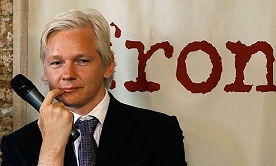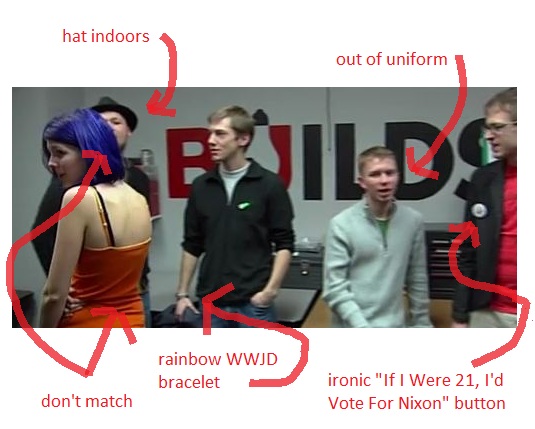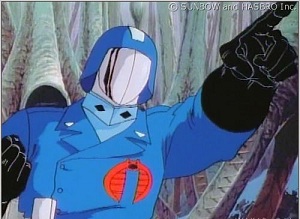3 Important Things About The New Wikileaks Controversy

Last week, Frontline did a documentary on Wikileaks which blew my mind. In it I learned Bradley Manning is gay. And short. And nothing else. No wait, about ten minutes in I learned I hate Frontline.

enemies of the state
I didn't think anything could make me an Assange supporter, but it turns out that the enemy of my enemy is my friend. That's right, I'm Alone.
I.
Assange wanted to leak to the NYT, Der Spiegel, and the Guardian. However, he wanted the NYT to publish first to avoid the U.S. charge that he was leaking info to foreigners, i.e. take advantage of the 1st Amendment. But the NYT wanted Wikileaks to publish first, so then it could simply report on what was leaked, rather than be a leak.
These are probably
legitimate concerns except for the fact that Wikileaks and the NYT are
having this discussion explicitly. I'm not a lawyer but isn't that
racketeering? It is like a bunch of mob guys discussing who should be
the one to do the hit based on their parole status. Assange:
There was collaboration from beginning to end in terms of timetabling, researching stories, talking about how to understand data, etc., etc., embargo dates, the works. [NYT editor] Keller has tried to say we were just the source; they were a passive recipient... in order to protect themselves from the Espionage Act they needed to be completely passive, or be presented as completely passive.
One man's collaboration is another man's conspiracy. So any collaboration between a journalist and a source, between one media organization and another media organization, can be viewed, the Attorney General Justice [sic] [Eric] Holder says, as a conspiracy that flows through.
Assange is diabolically clever, I wouldn't
expect anything less from the self-aggrandizing Cobra Commander. He's made this
"collaboration" the point. Since they collaborated, the NYT can't
pretend they were passive recipients, so they must therefore defend the legitimacy of such collaborations in general.
He's holding the press to task: your job is to keep the government accountable.
But
they're terrible at it, as evidenced by the fact that while they were
"collaborating," while they had all this juicy info sitting in front of
them, the story the Times chose to run was one about... Bradley Manning.
 The New York Times must stand up, and it must hold the line of
the traditional form of journalism, because if it is not protected, it will be the
end of holding the national security sector to account!!!
The New York Times must stand up, and it must hold the line of
the traditional form of journalism, because if it is not protected, it will be the
end of holding the national security sector to account!!!II.
Remember Climategate? Sarah Palin had a public orgasm and 4092 commenters blew up like Scanners. Climategate was the set of leaked emails that appeared to show climate scientists hiding data against global warming to suppress the critics; a global warming conspiracy.
"Climategate is an interesting case [says the Frontline interviewer]. What's the intent that you had when you leaked the Climategate e-mails?"
The truth needs no policy position, so there does not need to be an intent. We have a framework, and the framework has an intent.
This is exchange is so powerful it takes days to understand it.
First, Assange didn't leak the Climategate emails, which makes one of these two people a fibber and the other a fool. Assange did, later, host the data after the initial leak; and since it doesn't affect the next point, let's just move on.
III.
"Climategate is an interesting case [says the interviewer]. What's the intent that you had when you leaked the Climategate e-mails?"
The truth needs no policy position, so there does not need to be an intent. We have a framework, and the framework has an intent.
Assange
believes that truth needs no intent, which is obviously false. Without
a context, the truth can mislead. Excluding the context on purpose,
when you know that it will be misunderstood, is often as good as lying.
This has always been my/everyone's concern about Wikileaks.
But note the interviewer's question: "what's the intent you had?" That sentence is everything that's wrong with the press. Here are the assumptions the interviewer has made:
- He assumes Assange believes in "global warming." Why would he assume this? Because Assange is anti-U.S. government. So to the reporter, anti- U.S. government and belief in global warming go together.
- If Assange believes in global warming, the interviewer assumes
Assange wouldn't want to release those documents because it would hurt
the cause. Even though Assange has repeatedly said how he wants
"everything" public, the reporter assumes that Assange would only want
to release things which complement his own personal biases. In other
words, he assumes Assange is going to be like him.
Which is why his incredulous follow-up question is
But if you believed that we had a climate problem, that man was contributing to rising greenhouse gases -- I don't know, do you believe that's a reality?
He's stumped, exasperated. Why would you hurt your own case? I mean.. you don't doubt global warming, do you??????
That's
the difference between Wikileaks and the regular press. For the
reporter, climate change is not a scientific question, or else it
wouldn't matter what cables get released. It's a political one, in
which competing narratives are bolstered by circumstantial evidence and
appeals to authority and control of the debate.
Assange picks up on this and replies:
I do not think anyone working outside of climate science understands whether that is true or not, because people simply do not understand all the complexities. Rather, instead we look to see who is the most critical voice. What are the motivations behind those people?
Assange just dropped a truth bomb about science, evolution, psychiatry,
energy policy, economics, etc: since most people have, at best, a
college level understanding of the science but not nearly enough to appraise it
themselves, the debate about science is really a political debate-- no, a religious debate-- adorned with the trappings of "measurements" and "data."
I would have preferred we try to "elevate the debate" and talk about primary sources; but he seems to think that won't work on the public. So Assange will use intent as a proxy for truth, the closest approximation in the absence of really understanding what's going on.
The reporter thinks that intent is the only thing that matters.
So you publish the truth regardless of what effect it's going to have on the debate? Fair?
Read
that quote again. And again. And again. This man represents the
Fourth Estate that decides what truth you're allowed to read.
IV.
How can an organization go about doing things it shouldn't do, but wants to?
...we got hold of Guantanamo Bay's main manuals, we discovered that there were sections outlining how to keep information from the Red Cross and how to falsify records in relation to Red Cross visits to detainees. And this really surprised me... who would be foolish enough to put in a military manual that that sort of deliberate fabrication...?
But I came to understand why: that if you have a center that is devising policy, the center of a military [or a] commercial organization, and it wants to have that policy widely implemented, including by grunts, then it needs to go down in writing, because otherwise you just have Chinese whispers occurring, and the grunts can't work out what it is precisely that they are meant to be implementing.
Instead, [the grunts will] conduct behavior that is purely in their own interests, and the central policy gets distorted.
That's what the Cobra Commander thought, too, which is why he
structured it like a traditional military operation. Regardless of
whether your orders are good or
bad, the only way to have them reliably executed is to make them
official.
So that's a rather interesting understanding of how organizations really only have two choices to deal with transparency. The first choice is they can simply stop doing things that embarrass the public, so instead of committing an unjust act, commit a just act.
Pass. What else you got?
The other choice is that they can spend more on their security... they can take things off-record, speak orally and continue with this course of unjust action. But if they do that, they will become inefficient compared to other organizations, and they will shrink in their power and scale. And that's also great because unjust organizations are in economic and political equilibrium and competition with just organizations.
It is very easy, very easy, to decide whether what Wikileaks is doing is right or wrong. I don't mean you'll decide correctly, I just mean it only takes you a second to decide. Just like it took you with WMD and climate change.
The hard question to answer is what happens now that Wikileaks is a reality. The wholesale release of secret documents is now part of our cultural foundation, like porn, coffee, cohabitation, English, pants, driving, football. These things will be with us for generations. Assange thinks that this reality itself-- not the documents themselves, but the ability to access secrets, reduces the size and power of governments. Is he right?
If online porn can be seen as the wholesale leaking of sexual secrets, then its effect on traditional sexuality-- good and bad-- may serve as an analogy worth pondering.
---
The WSJ wants Assange indicted for competition
26 Comments